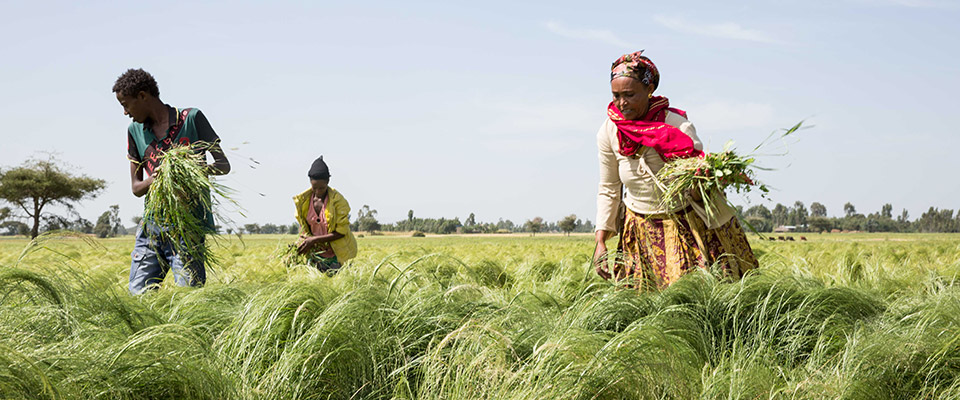- About
- Topics
- Picks
- Audio
- Story
- In-Depth
- Opinion
- News
- Donate
- Signup for our newsletterOur Editors' Best Picks.Send
Read, Debate: Engage.
| November 27, 2017 | |
|---|---|
| topic: | Democracy |
| tags: | #Ethiopia, #human rights, #democracy, #dictatorship, #development, #International Monetary Fund |
| located: | Ethiopia |
| by: | Bob Koigi |
It has even overtaken Kenya as the economic giant of East Africa, despite having struggled to take care of its people some 20 years ago. It is a development anchored on the second most populous African country’s huge investment in major infrastructure projects including mega power-generating dams, modern electric rail line and a booming manufacturing sector. This, as the 100 million people populated country seeks to elevate itself to middle economy status by the year 2025.
But behind the development façade is a story of an authoritarian regime that rules with an iron fist, clumping on the freedom of the media, jailing dissenting voices and one that is allergic to criticism. Under Prime Minister Hailemariam Desalegn’s tutelage, Ethiopia runs on the dictatorship and development maxim, where the government’s decision is final with no alternative channels to oppose.
Analysts say that while to the international community this may seem dictatorial, the fact that the government is able to provide jobs for its people while making the cost of living bearable is reason enough for a bulk of Ethiopians to be content with its leadership style. “The government has for example set out an ambitious plan to create 200,000 jobs each year until 2025. It is already doing so with the already running industrial park that employs 60,000 workers and another 150,000 indirectly. The pay for these workers is way better than what they used to earn before. These people will not be thinking about being under an authoritarian rule. As long as they earn, nothing else matters,” said Phillip Muniri, a public policy analyst and a visiting lecturer at Hawassa University in Ethiopia.
The government stops at nothing in ensuring development happens. This, through the government Growth and Transformation Plan that gives government total intervention in the economy. For example, it is argued that all land belongs to the government that can take it without prior warning or questioning. Ordinary farmers have had their land forcefully taken to pave way for government championed development projects.
Up to 1.5 million pastoralists and agropastoralists in the fertile lowlands have had their land taken and given to agribusiness investors. It is a practice that has run for decades and has been perfected by the late omnipotent Prime Minister Meles Zenawi. In the past, the Afar people, living in the Awash Valley, one of the prime locations for pastoralists in the country, have had their grazing land forcefully taken to establish large scale cotton and sugar plantations as the government look to make the country one of the global frontrunners in sugar production by 2023. The Omo Kuraz sugar project that has five sugar factories and 150,000 hectares of sugarcane plantations has tampered with the Omo River which has seen it shrink by 70 per cent. This has put in danger the lives of over 200,000 Ethiopians and 300,000 who rely on the downstream water from the river for fishing, agriculture and herding.
Still, the government believes that the megaprojects are for the benefit of every Ethiopian, as it now moves to graduate the country from being agriculture-based to a manufacturing powerhouse.
This high handedness has however accelerated major projects and seen it spend a fraction of the money compared to its regional peers. While its more superior modern rail system cost $475 million, Kenya’s standard gauge railway that is of a lower class, using locomotives, cost the country $3.8 billion and took longer to complete. It's argued that it is because of the many court cases in the Kenyan project with tens of landowners seeking favourable and sometimes overly priced compensation from the government. Similar projects in power generation have also stalled in Kenya as an avalanche of court cases put brakes to projects that seek to provide electricity to millions who are still not connected to the grid. Ethiopia has outsmarted Kenya and is now set to start exporting electricity to Kenya thanks to the ongoing $5 billion Grand Renaissance Dam, which upon completion will earn the country $1 billion yearly in electricity sales and exports. The government has however always been skeptical about investors with the telecoms, retail and financial services sectors being closed to foreign investors even as it remains suspicious of the private sector.
The opposition and journalists who have advocated for respect for the alternative voice have had to pay the ultimate price especially when they question the government’s priorities. And in a country where Ethiopian People’s Revolutionary Democratic Front, EPDF, the ruling party controls all the seats in parliament, the voices of the dissenting are at the mercy of the government.
Earlier this year, former spokesman of Blue party Yonatan Tesfaye belonging to the opposition was jailed for six and a half months on charges of encouraging terrorism after a Facebook post that criticized the handling of antigovernment protests that saw over 1,000 people killed. Merera Gudina, a leader of Oromo who are the greatest critics of the government is facing trial for terrorism-related charges for sharing a platform at the European parliament with a leader of a political grouping that the Ethiopian government has always regarded as terrorists.
The 2009 anti-terrorism proclamation that the government has actively applied against its critics has seen many seek asylum for fear of their lives.
“There will definitely be anti-government protests going forward, but so will the government’s high handedness. And now that it has found a formidable ally in China that is not keen on human rights the government isn’t likely to succumb to international pressure,” said Philip.
By copying the embed code below, you agree to adhere to our republishing guidelines.
